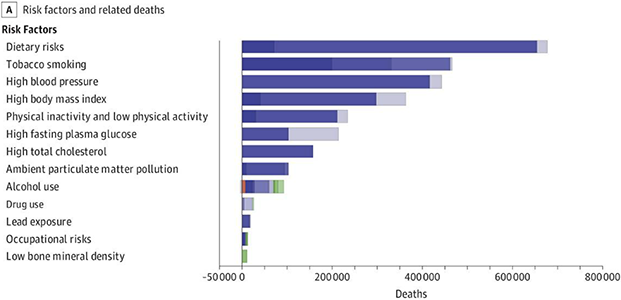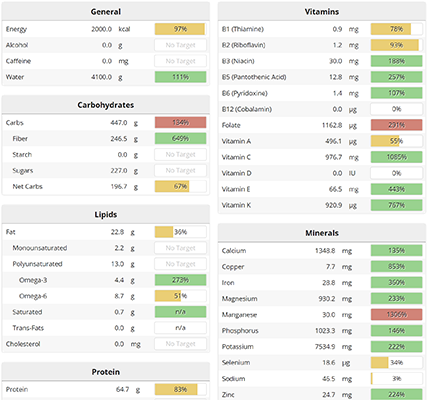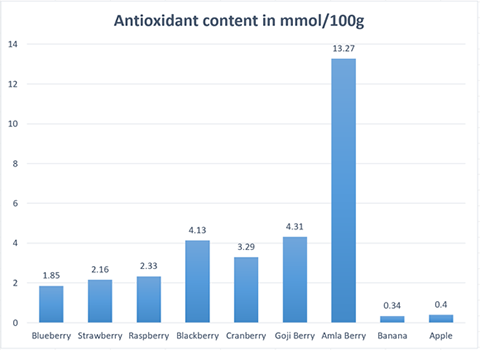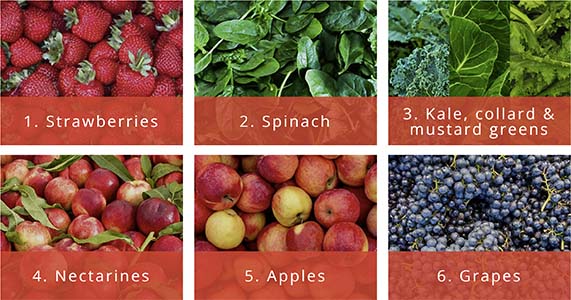A crazy hypothetical reminded me that berries are absurdly healthy. I wondered, what would my nutrient intake look like if all I ate were 2,000 calories of blackberries? Surprisingly, quite good! But obviously not perfect so what is the optimal intake of berries? What makes them so healthy? And can you eat too many? Well, let’s get into it!
Benefits of Berries
A study funded by the Bill and Melinda Gates foundation in 2013 found diet to be the leading risk factor for death and disability. Worse than smoking or being overweight. Our diets suck. And one of the most important risks identified in that dietary category was diets low in fruit. [1]

Of the fruit family, berries are the superstars. So, what’s so good about berries? They’re some of the lowest sugar fruits while containing some of the most nutrients [2]. This means their nutrient density, or nutrient per calorie, is off the charts. I found this out when putting 2,000 calories worth of blackberries into my food diary. That’s 32 cups of blackberries. Good luck eating all those in a day! But this thought experiment showed me how many of my nutrient requirements would be met with one food alone. The vitamins and minerals were exceptional but even proteins and fats weren’t insignificant.

Obviously, I wouldn’t only eat berries every day because it’d cause nutritional deficiencies. Sure, protein is almost met, but the essential amino acids that make up protein would be deficient. Fiber is extremely high, but the variation in fiber type molecules is low. But still, the illustration was impactful for me. Berries have a robust nutrient profile.

This is partly due to flavonoids that provide berries with their vibrant colors [2]. These flavonoids provide antioxidant properties too that make them 10x more antioxidant rich than other fruits [4]. Apples and bananas are the most common fruit consumed in the US, but only have .4 mmol of antioxidants per 100g. That’s not a lot compared to blackberries at 4.13 mmol [6]. And if you’re looking for the most antioxidants, you’d find those in Indian gooseberries (amla berries). My Dad likes to sprinkle powdered amla berries on his fruit bowl in the morning. Quite bitter but good. So how many berries should you consume?
Optimal Berry Intake
Unfortunately, a question like this is difficult to answer. I couldn’t find studies that pinpoint this. But looking at optimal fruit and vegetable intake can provide clues. For example, a meta-analysis of 26 prospective cohort studies documented the highest risk reduction in mortality were 2 servings of fruit and 3 servings of vegetable per day. They also stated that “we cannot entirely rule out the possibility of some modest benefits above 5 servings of fruit and vegetable intake per day, although the results for intake >5 servings per day may be less robust.” Therefore, I’d say two servings of fruit a day should be the minimum. Of that, at least one should be berries. And to maximize benefits, eat a variety of them. [5]
Typically, I’ll consume a serving of blueberries and strawberries with breakfast. Then I’ll add another serving of raspberries or blackberries for lunch. This totals three servings per day. The only problem I could find with consuming too many servings of berries is that it crowds out space in the diet for other healthy food groups. If all you’re eating is berries, then there’s less room for vegetables, whole grains, beans, mushrooms, nuts, and seeds. But with my high physical activity level, and caloric intake hovering around 3,000 calories, this is less of an issue for me.
Quick Berry Tips
Finally, here are some quick tips for optimal berry consumption. Strawberries continually top the Environmental Working Group’s Dirty Dozen for highest pesticide produce. Raspberries and blueberries aren’t much better. Buying organic is key. [7]

Unfortunately, this raises the cost of an already expensive food group. To combat this, buying frozen helps. Frozen berries tend to be cheaper, picked at peak ripeness, and last longer than fresh berries. I use frozen berries for all my smoothies and oatmeal. I buy fresh berries for regular consumption at lunch. Both organic, whenever available.
I also tried fresh cranberries recently and they were extremely bitter. This is a good sign of their high antioxidant concentration. But a bad sign for my tongue that was numb and hurting on the side I was chewing the berries on. I thought toughing it out was worth it in the moment, but now even a week later and my tongue isn’t fully healed. I did eat a lot… and they were very bitter… I’m not sure if this is typical.

